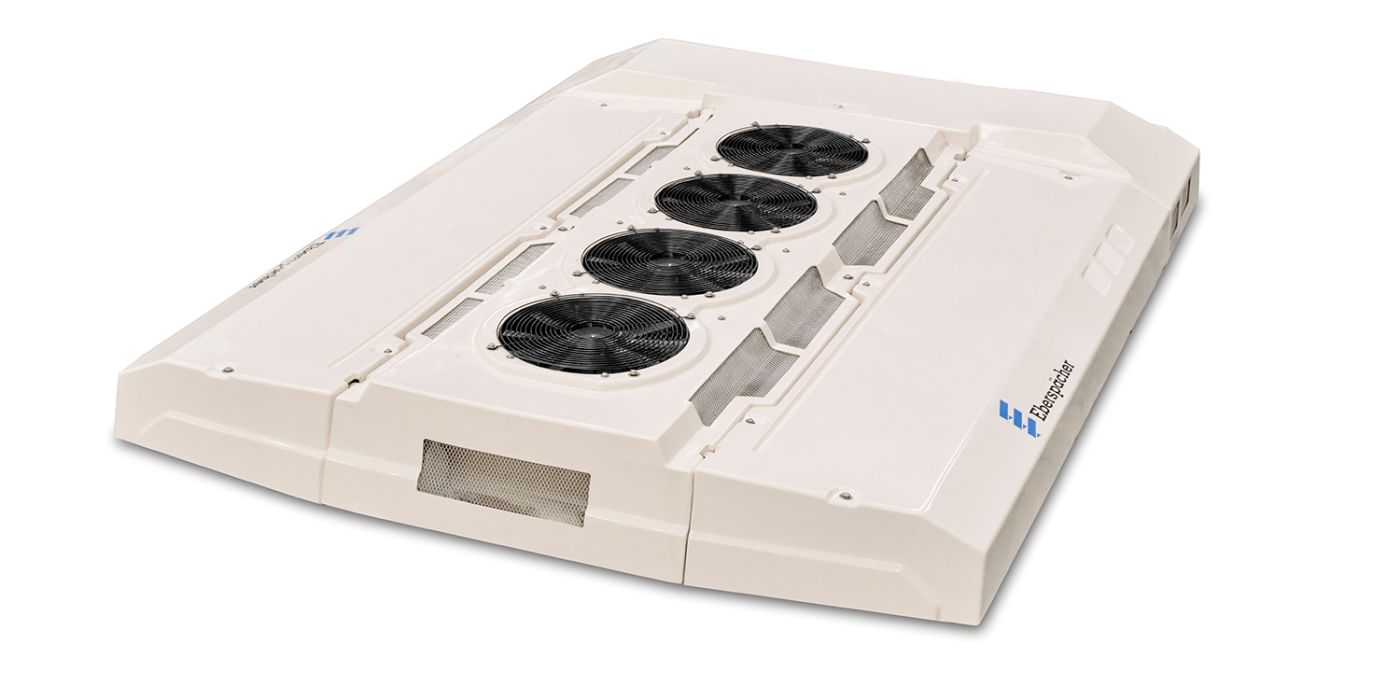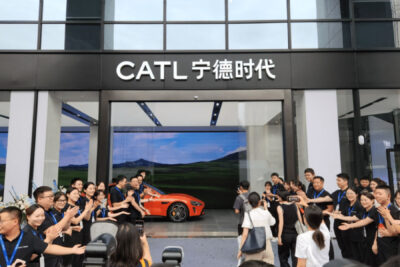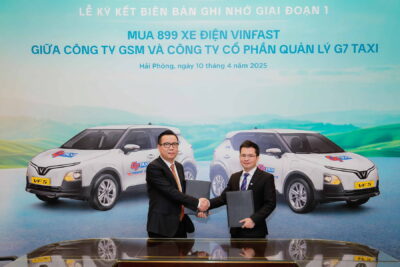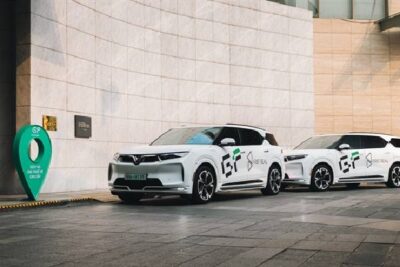Eberspaecher announces thermal management for e-buses
The German automotive supplier Eberspaecher has developed a fully electric air conditioning system for hybrid and all-electric buses, particularly for customers in India, the Middle East and Asia: the AC135 AE platform.
The new thermal management system for large and mid-size buses comes with an integrated inverter, battery thermal management and customer-specific software. Different platform versions of the AC135 AE are also available, providing heating and cooling performance levels from 30 kW to 40 kW.
The AC353-5 features an optimised condenser and improved heat exchanger design, which lead to a significant reduction in weight, refrigerant (up to 15 %), power and fuel consumption, as well as increased AC system efficiency, according to Eberspaecher. The interface remains the same across all performance variants for an easier on-roof installation and reduced roof structure variances, the company explains. A total of five variants are available at launch with different heating and cooling performance levels allow the use in all regions of the world.
By manufacturing the AC135 AE in Bangalore, India, Eberspaecher says it is further strengthening the significance of their local plant as a hub for the Asia-Pacific region. All-electric bus AC systems from Eberspaecher are already produced in Poland and Mexico to supply the European and American markets.
Eberspaecher is basing its decision to manufacture in India based on the forecast that 40% of India’s bus fleet will consist of BEVs by 2040. While it is some time to go, the extent of the endeavour is massive, as is the potential of the Indian market. However, as global climates continue to rise, most notably in the areas Eberspaecher is aiming for with their new product, battery thermal management will likely become one of the most important technologies.
Last year, Eberspaecher also announced the acquisition of fuel cell supplier ViCTORi, which would mean that the company also has the technological know-how to extend their systems to fuel cell buses, however, it makes sense for the company to focus on battery-electric vehicle products first, as India is also focusing on those, for example with Delhi ordering 1,500 electric buses in July. Several new battery factories are springing up, and Volvo and Citroën are even looking to start manufacturing electric cars there. Mumbai also ordered over 2,000 electric buses earlier this year.





1 Comment